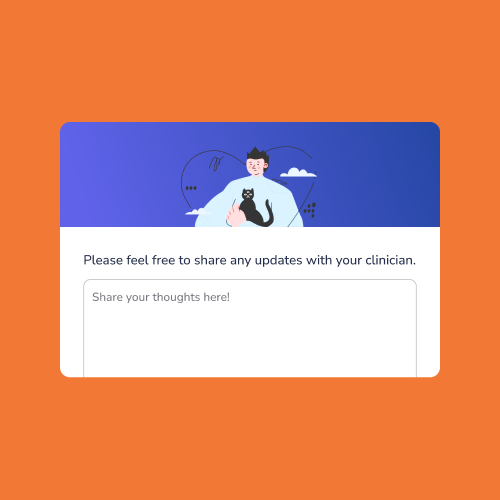Easy Feedback
Understanding Context In Mental Health Assessment: Going Beyond The Numbers
We know that standardised assessment results are only part of the picture. They can’t explain what’s really going on in the lives of our patients.
That’s why patients need the opportunity to share significant life events and updates with their therapist. The information they provide helps to make sense of quantitative assessment data.
Perhaps a patient has recently experienced a breakup or lost a loved one? Such information helps to explain why mood scores might be a little abnormal this week.
Feedback is essential for contextualising symptom severity scores, diagnosis or red flags that show up on assessments.

Collecting Feedback Doesn’t Need to be Awkward
Therapists are often afraid to ask patients directly about their experience of therapy. It’s understandable that we may hesitate to invite comments that could trigger self-doubt. And so all too often, we tend to skip these questions altogether.
It can also be tough for many patients to offer verbal feedback about therapy without any mechanism, scaffolding or prompting to do so. They may be concerned about hurting the therapist’s feelings or else appearing mean or demanding.
Sometimes, the information patients need to provide isn’t about therapy, but about significant events that occur in between appointments—such as medication changes, medical episodes and major life events. Time is lost or details missed when patients are required to give a lengthy update at the beginning of a session.
Easy Feedback Collection with Measurely
Measurely helps bypass all of the obstacles that prevent patients from providing important updates and feedback.
Each time they complete an assessment, they’re prompted to provide comments and feedback on significant updates, their current well-being, and their experience with therapy so far..
This information shows up immediately in the Measurely dashboard for the clinician to review before next session.

